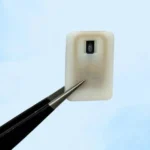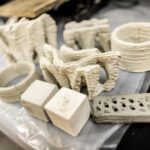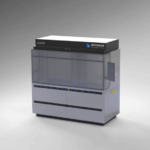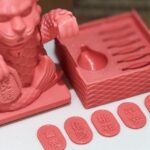A team of researchers from universities in China and Belgium have published the results of a study that looked at the effects of thermal annealing on the performance of 3D printed polymer parts made using FDM processes.
The study used both semi-crystalline and amorphous filaments and annealed them at different temperatures (60, 110 and 150 °C) for various durations ranging from 50 to 6400 seconds.
The results showed that annealing led to an increase in flexural strength and Young’s modulus by a maximum of 10% due to the development of crystallites. However, the morphological changes from annealing led to a reduction in performance against local tensile deformation. For amorphous parts, the degradation was approximately 25% in both the flexural strength and modulus.

This study adds to the ongoing research into the role of thermal annealing in improving the mechanical integrity of 3D printed parts, with a focus on its effect on physical, thermal and mechanical performance.
You can read the full paper, titled “The effects of thermal annealing on the performance of material extrusion 3D printed polymer parts” over at this link.
Come and let us know your thoughts on our Facebook, Twitter, and LinkedIn pages, and don’t forget to sign up for our weekly additive manufacturing newsletter to get all the latest stories delivered right to your inbox.









